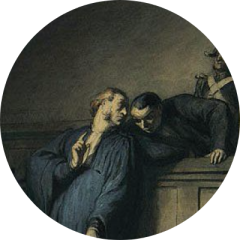California’s mental-health diversion statute, codified at section 1001.36 of the Penal Code, was groundbreaking when it first went into effect in 2018. Promising eligible defendants “postponement of prosecution, either temporarily or permanently, at any point in the judicial process from the point at which the accused is charged until adjudication, to allow the defendant to undergo mental health treatment,” the statute vests the trial court with tremendous power to treat underlying criminogenic needs.
The contours of that statute are still being worked out, and the trial courts still manage to get it wrong. What happens when the defendant, who has mental-health issues, actually proceeds to trial and then seeks mental-health diversion (MHD)?
In People v. Curry, C090409, the defendant was charged with robbery. Deemed competent following a psychiatric report documenting “mild symptoms of situation related anxiety and depression,” he stood trial and was convicted by a jury. In advance of sentencing, the defendant, filing motions pro per, announced an intention to file a petition for MHD, which the court denied as untimely. Notably, the defendant advised that “he raised the issue with his trial counsel ‘well in advance,’ but ‘she never even investigated it, you know. My mental health at the time was brought up.'”
Reversing, the Third District concluded that because the legislative intent behind the MHD statute was to “apply as broadly as possible,” the statute’s phrase, “until adjudication” meant “until the judgment of conviction,” not “until adjudication of guilt.” This resolves an issue raised in, and undecided by, the California Supreme Court in People v. Frahs (2020) 9 Cal.5th 618, 633, fn.3.
The implications of Curry‘s clear definition of section 1001.36’s limitations for post-trial motions practice is clear. Counsel’s obligation thoroughly to explore MHD does not end upon the clerk’s reading of the jury’s verdict after trial. Rather, MHD should be considered up until judgment is entered.
